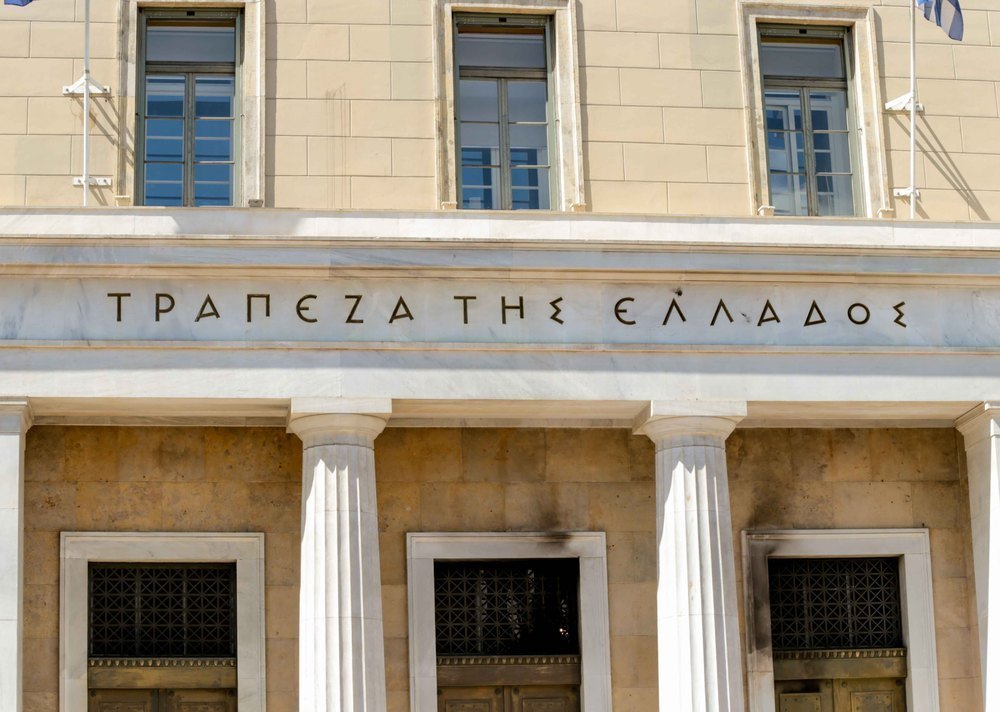According to the Bank of Greece, a rise in the deficit of the balance of goods is accounted for by a larger
increase in imports than in exports. Exports grew by 24.1% at current prices (and
dropped by 1.5% at constant prices), while imports rose by 44.7% at current
prices (17.1% at constant prices). In particular, non‑oil exports of goods grew
by 21.4% at current prices (10.4% at constant prices) and non‑oil imports
of goods increased by 33.7% at current prices (25.4% at constant prices).
The surplus of the services balance doubled, reflecting an improvement in all subaccounts (travel, transport and other services balances). Non‑residents’ arrivals and the corresponding receipts rose substantially (by 294.0% and 406.9%, respectively). In particular, receipts and arrivals stood at 60% and 55%, respectively, of the December 2019 levels. The surplus of the transport balance grew mainly on the back of an improvement in the surplus of the sea transport balance.
The primary income account surplus fell year‑on‑year, due to lower interest, dividend and profit receipts. The secondary income account surplus increased year‑on‑year, mainly as a result of higher general government net receipts.
In 2021, the current account deficit decreased by €356.6 million year‑on‑year and stood at €10.6 billion.
A rise in the deficit of the balance of goods is due to the fact that imports increased more than exports. In particular, exports grew by 35.2% at current prices (12.7% at constant prices) and imports increased by 36.4% at current prices (13.6% at constant prices). Specifically, non‑oil exports and imports of goods grew by 26.9% and 27.7% respectively (20.2% and 24.2% at constant prices).
A rise in the services surplus is almost exclusively attributable to an improvement in the travel services balance; however, this was partly offset by a decline in the surplus of the transport balance. Non‑residents’ arrivals grew by 99.4% and the relevant receipts by 146.7% year‑on‑year, corresponding to 46.9% and 58.6% of the respective levels in 2019. Net transport receipts dropped by 6.0%.
The primary income account turned from deficit to surplus year‑on‑year, mainly owing to lower net interest, dividend and profit payments, while the surplus of the secondary income account more than doubled, due to an increase in general government net receipts.
Under direct
investment, residents' external assets increased by €287.2 million and
residents' external liabilities rose by €530.5 million.
Under
portfolio investment, an increase in residents’ external assets is due to a
rise of €4.0 billion in residents’ holdings of foreign bonds and Treasury
bills. A decrease in residents’ external liabilities is due to a drop of
€866 million in non‑residents’ holdings of Greek government bonds and
Treasury bills.
Under other investment, a decrease in residents’ external assets is mainly attributable to a decline of €970.9 million in residents’ deposit and repo holdings abroad, which was partly offset by the statistical adjustment (of €604.0 million) related to the issuance of banknotes. An increase in their liabilities represents a rise of €4.3 billion in loans extended to residents and an increase of €998.0 million in non‑residents’ deposit and repo holdings in Greece (the TARGET account included).
In 2021,
under direct investment, residents' external assets increased by
€992.9 million and residents' external liabilities, which represent non‑residents'
direct investment in Greece, rose by €5.1 billion.
Under
portfolio investment, an increase in residents’ external assets is mainly
attributable to a rise of €24.2 billion in residents’ holdings of foreign
bonds and Treasury bills and an increase of €2.0 billion in their holdings
of foreign equities. A rise in residents' external liabilities is due to
increases of €2.1 billion in non‑residents' holdings of shares of Greek
firms and €1.4 billion in non‑residents’ holdings of Greek government
bonds and Treasury bills.
Under
other investment, residents’ higher external assets reflect a €4.4 billion
statistical adjustment related to the issuance of banknotes, which was partly
offset by a €2.7 billion decrease in residents’ deposit and repo holdings
abroad. An increase in residents’ liabilities reflects chiefly a rise of
€18.1 billion in non‑residents’ deposit and repo holdings in Greece (the
TARGET account included) and a €7.3 billion increase in loans extended to
residents.
At the end of 2021, Greece’s reserve assets stood at €12.8 billion.















